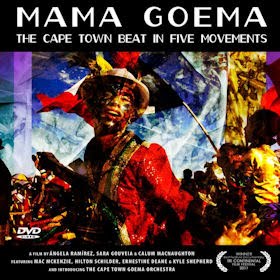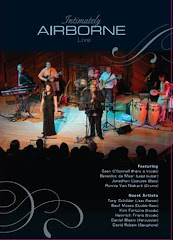The story of South African music is one of dialogue with imported forms, and varying degrees of hybridisation over the years.
From the earliest colonial days until the present time, South African music has created itself out of the mingling of local ideas and forms with those imported from outside the country, giving it all a special twist that carries with it the unmistakeable flavour of the country.
BeginningsIn the Dutch colonial era, from the 17th century on, indigenous tribespeople and slaves imported from the east adapted Western musical instruments and ideas.
The Khoi-Khoi, for instance, developed the
ramkie, a guitar with three or four strings, based on that of Malabar slaves, and used it to blend Khoi and Western folk songs.
The
mamokhorong was a single-string violin that was used by the Khoi in their own music-making and in the dances of the colonial centre, Cape Town, which rapidly became a melting pot of cultural influences from all over the world.
Western music was played by slave orchestras (the governor of the Cape, for instance, had his own slave orchestra in the 1670s), and travelling musicians of mixed-blood stock moved around the colony entertaining at dances and other functions, a tradition that continued into the era of British domination after 1806.
In a style similar to that of British marching military bands, coloured (mixed race) bands of musicians began parading through the streets of Cape Town in the early 1820s, a tradition that was given added impetus by the travelling minstrel shows of the 1880s and has continued to the present day with the great carnival held in Cape Town every New Year .
Missionaries and choirsThe penetration of missionaries into the interior over the succeeding centuries also had a profound influence on South African musical styles. In the late 1800s, early African composers such as John Knox Bokwe began composing hymns that drew on traditional Xhosa harmonic patterns.
In 1897,
Enoch Sontonga, then a teacher, composed the hymn Nkosi Sikelel' iAfrika (God Bless Africa), which was later adopted by the liberation movement and ultimately became the
National Anthem of a democratic South Africa.
The missionary influence, plus the later influence of American spirituals, spurred a gospel movement that is still very strong in South Africa today. Drawing on the traditions of churches such as the Zion Christian Church, one of the largest such groupings in Africa, it has exponents whose styles range from the more traditional to the pop-infused sounds of, for instance, former pop singer Rebecca Malope.
Gospel, in its many forms, is one of the best-selling genres in South Africa today, with artists who regularly achieve sales of gold and platinum status.
The missionary emphasis on choirs, combined with the traditional vocal music of South Africa, and taking in other elements as well, also gave rise to a mode of a
capella singing that blend the style of Western hymns with indigenous harmonies.
This tradition is still alive today in the
isicathamiya form, of which Ladysmith Black Mambazo are the foremost and most famous exponents.
Though some instruments such as the mouth bow were used, drums were relatively unknown. Later, instruments used in areas to the north of what is now South Africa, such as the mbira or thumb-piano from Zimbabwe, or drums or xylophones from Mozambique, began to find a place in the traditions of South African music-making.
Still later, Western instruments such as the concertina or the guitar were integrated into indigenous musical styles, contributing, for instance, to the Zulu mode of maskanda music.
The development of a black urban proletariat and the movement of many black workers to the mines in the 1800s meant that differing regional traditional folk musics met and began to flow into one another.
Western instrumentation was used to adapt rural songs, which in turn started to influence the development of new hybrid modes of music-making (as well as dances) in South Africa's developing urban centres.
This vocal music is the oldest traditional music known in South Africa. It was communal, accompanying dances or other social gatherings, and involved elaborate call-and-response patterns.
 Source: SouthAfrica.info
Source: SouthAfrica.infoThe all-in-one official guide
and web portal to South Africa




















